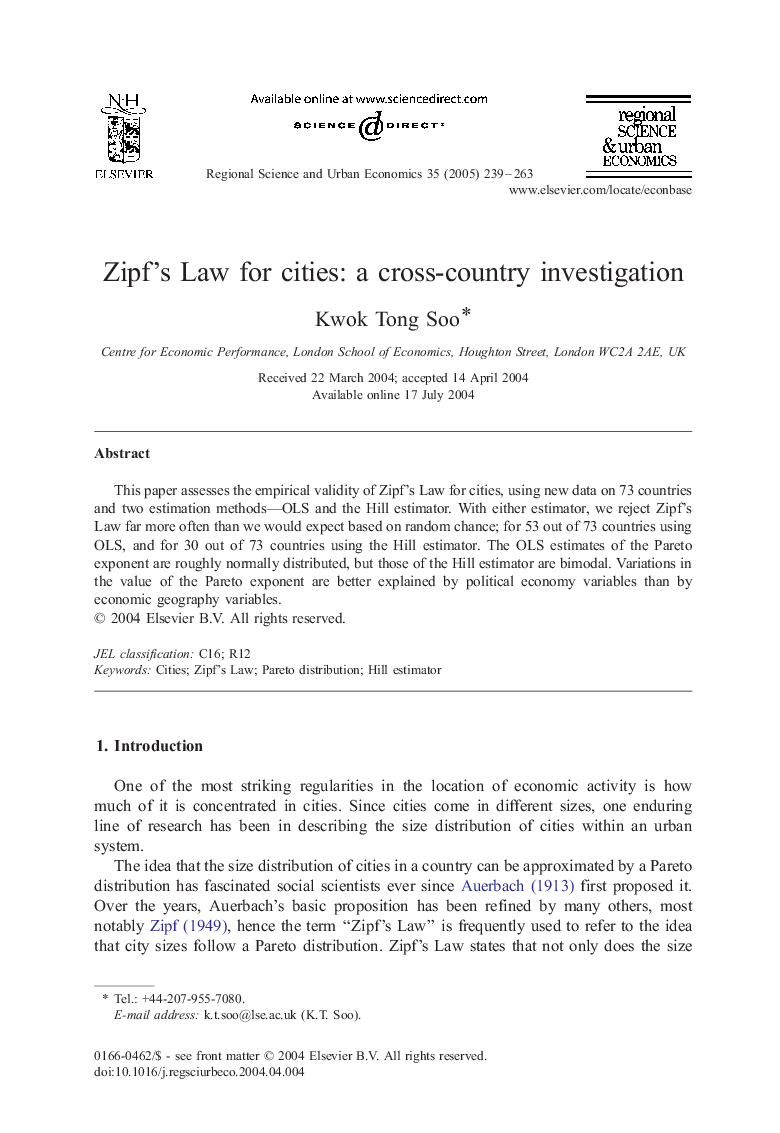| Article ID | Journal | Published Year | Pages | File Type |
|---|---|---|---|---|
| 10482379 | Regional Science and Urban Economics | 2005 | 25 Pages |
Abstract
This paper assesses the empirical validity of Zipf's Law for cities, using new data on 73 countries and two estimation methods-OLS and the Hill estimator. With either estimator, we reject Zipf's Law far more often than we would expect based on random chance; for 53 out of 73 countries using OLS, and for 30 out of 73 countries using the Hill estimator. The OLS estimates of the Pareto exponent are roughly normally distributed, but those of the Hill estimator are bimodal. Variations in the value of the Pareto exponent are better explained by political economy variables than by economic geography variables.
Related Topics
Social Sciences and Humanities
Economics, Econometrics and Finance
Economics and Econometrics
Authors
Kwok Tong Soo,
